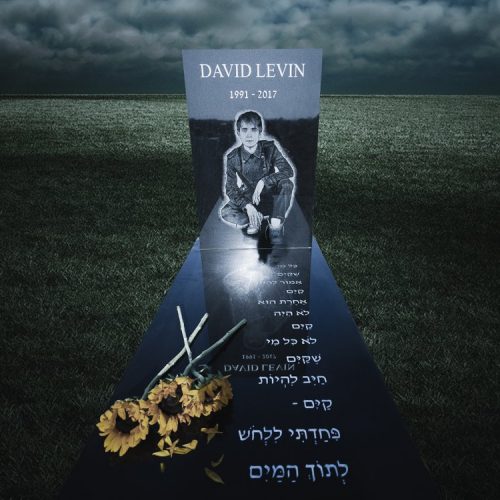If you knew you had limited time left on the earth, what would you feel? How would you think? What would you like to say?
One half of the duo Titi Woo, which is made up of twin brothers from Russia, Jody and David, lays out at least the answer to the last question in their latest single, “To All Who’s Out There” (or also titled in Hebrew, “לכל מי שקיים”). David was diagnosed with leukemia and passed away shortly after they recorded their music. Since then, his brother Jody has been gradually releasing singles, so even though it’s been three years now since David’s passing, we still get to hear his gentle, uplifting voice beyond the grave.
Much like the brothers’ other music, there’s a tone of optimism mixed with melancholy, often inspired by their quest of self-identity since coming out as homosexual when they were sixteen. But uniquely, this song is very intimate, giving us a glimpse into a dying man’s thoughts.
The instrumental tones and rhythms are reminiscent of other popular songs, such as “Down Here On The Bottom” and “Where Are You,” in which a guitar holds the frontline, with accompanying drums and base. The sounds are classic indie pop/rock. They don’t stray into the fanciful or experimental, relying instead on the simple and familiar and letting their talented vocals provide all that the listener needs.
The unique thing about “To All Who’s Out There” is the subtly sadder tone to it, considering its source material. And, of course, the fact that half of the lyrics are in Hebrew instead of all English, which in itself makes the song stand out above the others. It begins with the calming strumming of a guitar and David’s beautiful vocals as he sings the Hebrew verse. It’s almost conversational, as if David is speaking directly to the listener, perhaps trying to soothe them as they also contemplate death. As he expresses his fears, the listener finds some catharsis in calming their own. The music crescendos as other instruments tag on and the tone becomes a tad louder and more urgent, eventually climaxing into an orchestral ending. That sensation of “running out of time” is reflected perfectly in this sound growth.
The Hebrew part translates as following:
All those who exist should exist, otherwise they wouldn’t
Not everyone who exists must exist
I was afraid to whisper that into the water
David had requested this be engraved on his tombstone, in Hebrew, making this part (sung by David himself) a moment of him singing to us beyond the grave. His warm delivery of the words draws us in, and even if you can’t understand them at first, you can’t help but feel a bittersweet fervor come over you. The next words, in English, are almost like an assurance for all of our worries about dying:
Somebody really, really loves you, Forever
Who will never let you disappear,
You’re still here
Everything is perfect
You’re here
It’s like he’s saying, “Even when you’re gone, you’ll never be gone, because the memory of you will live on.”
It may have been just for him, but those words will resonate with all of us, forever.







